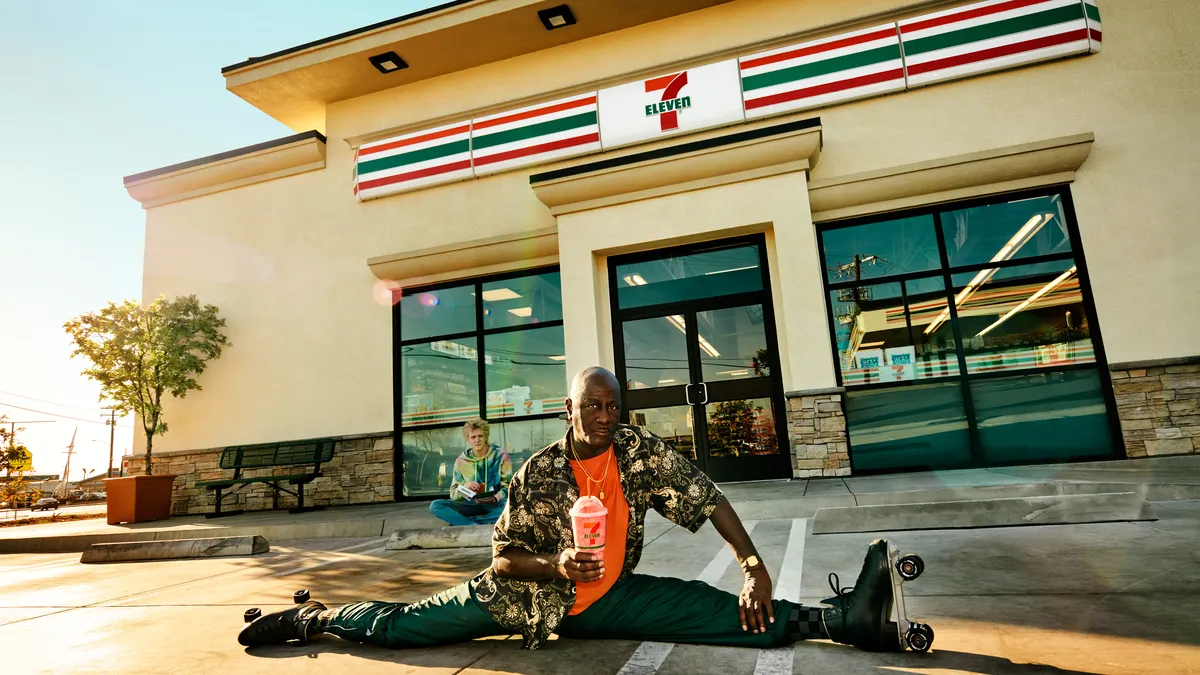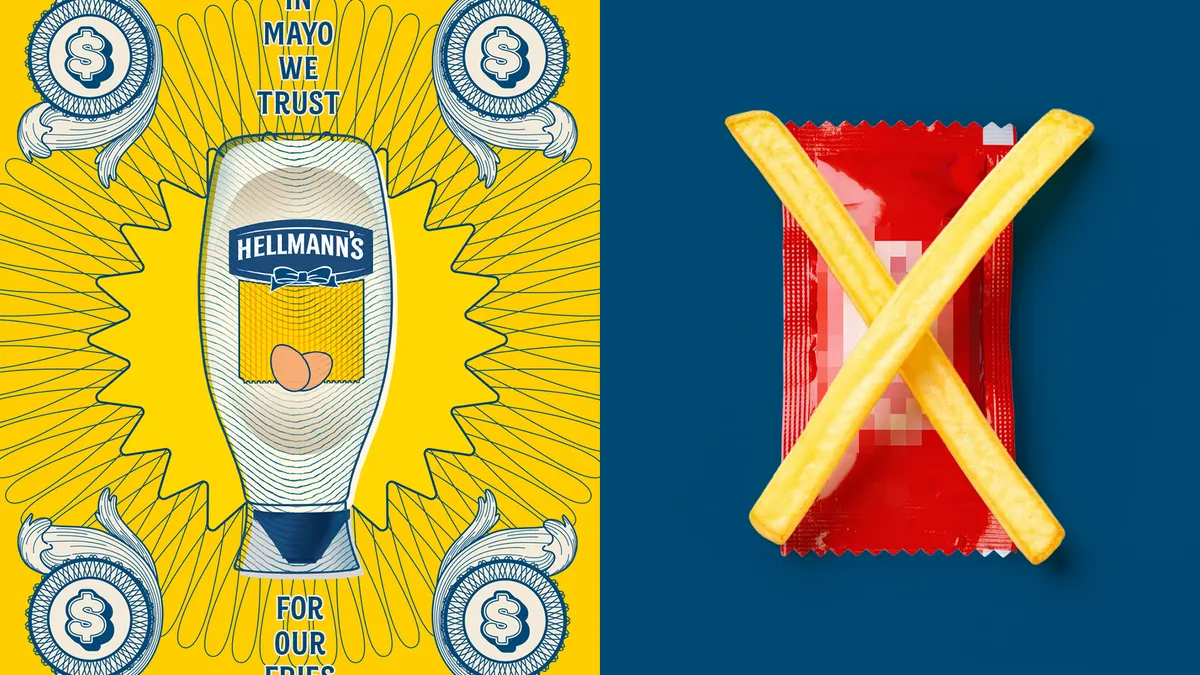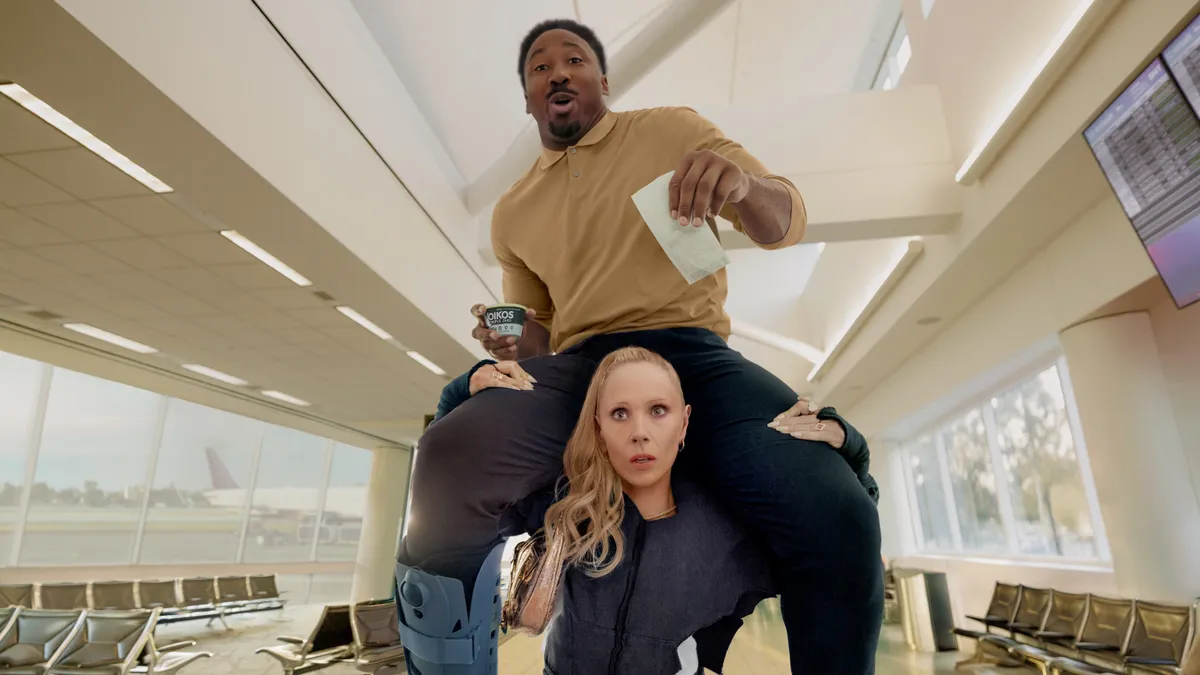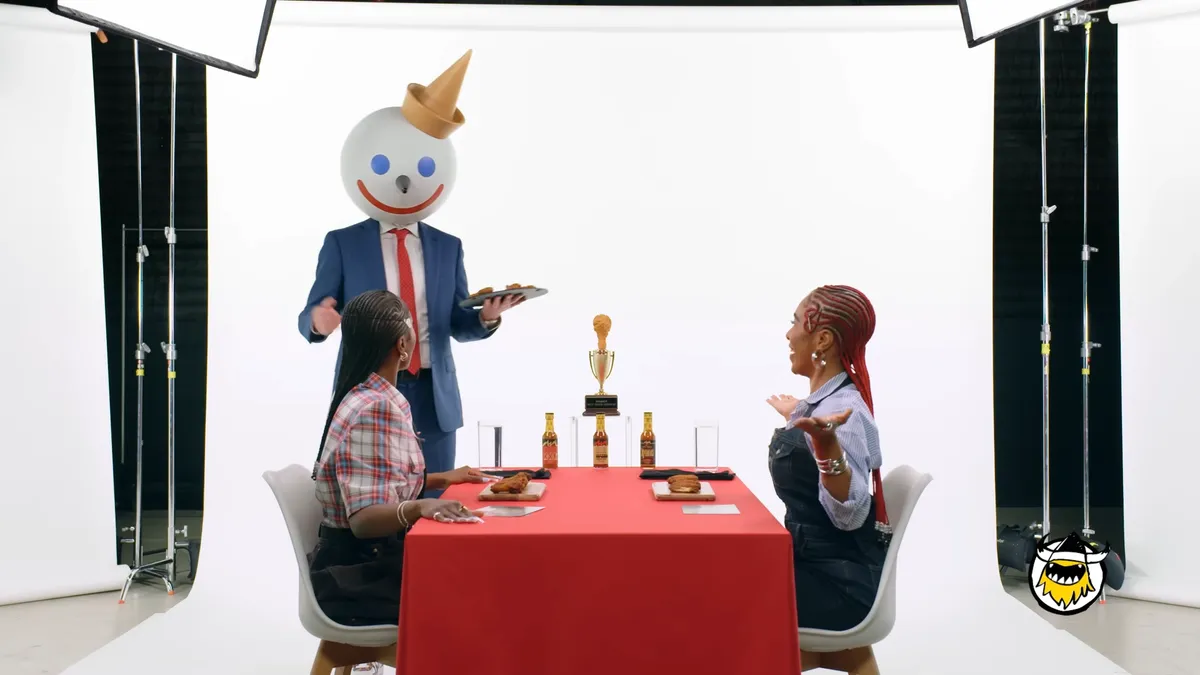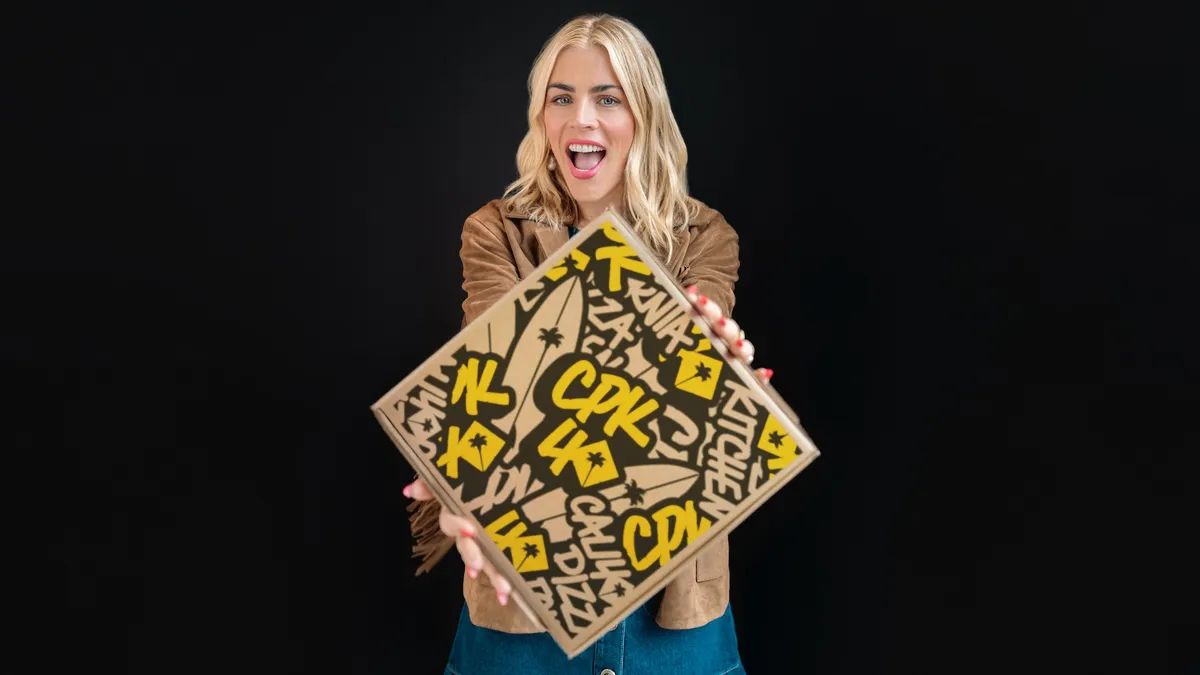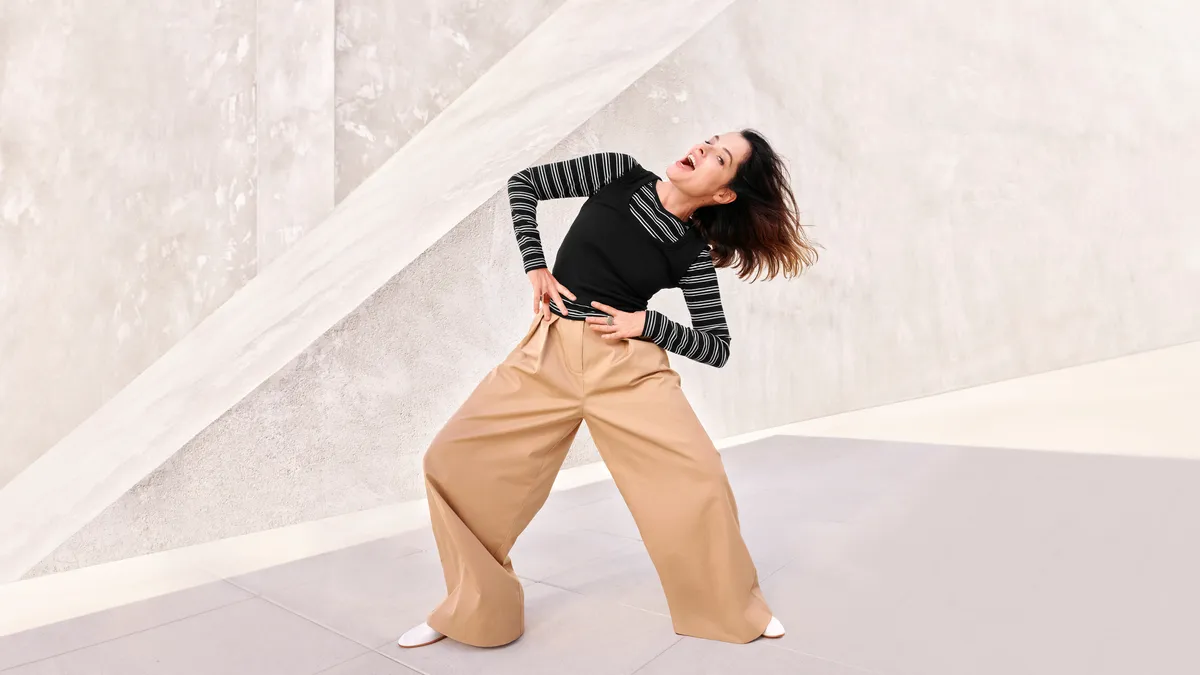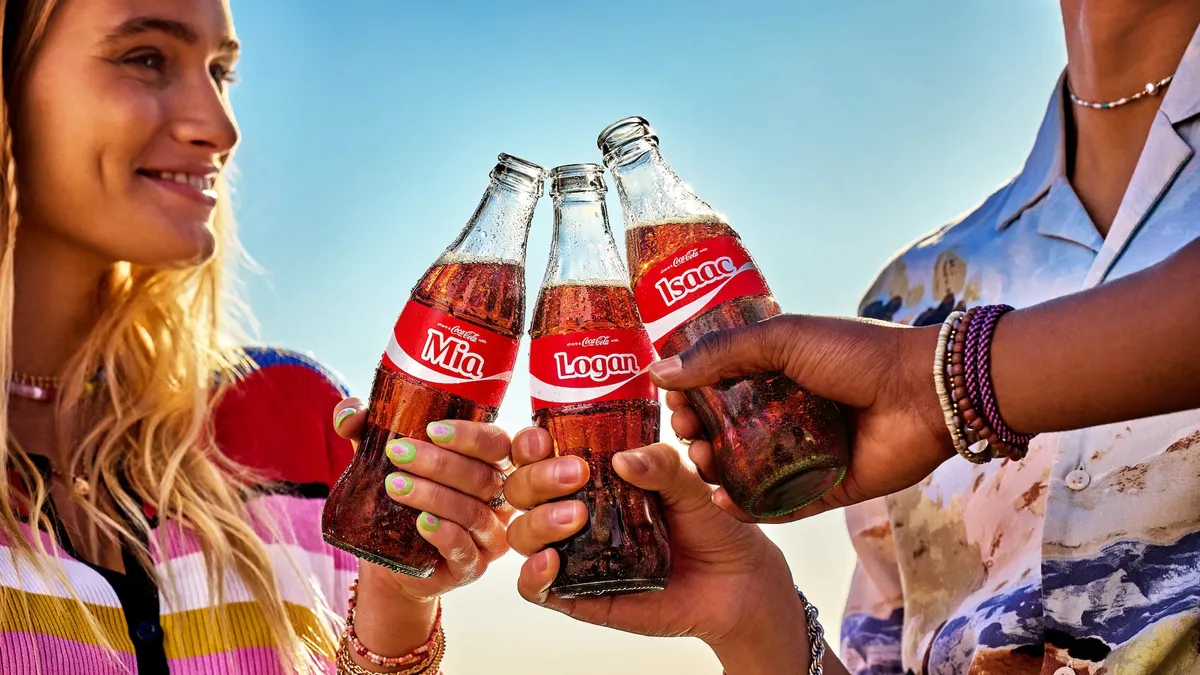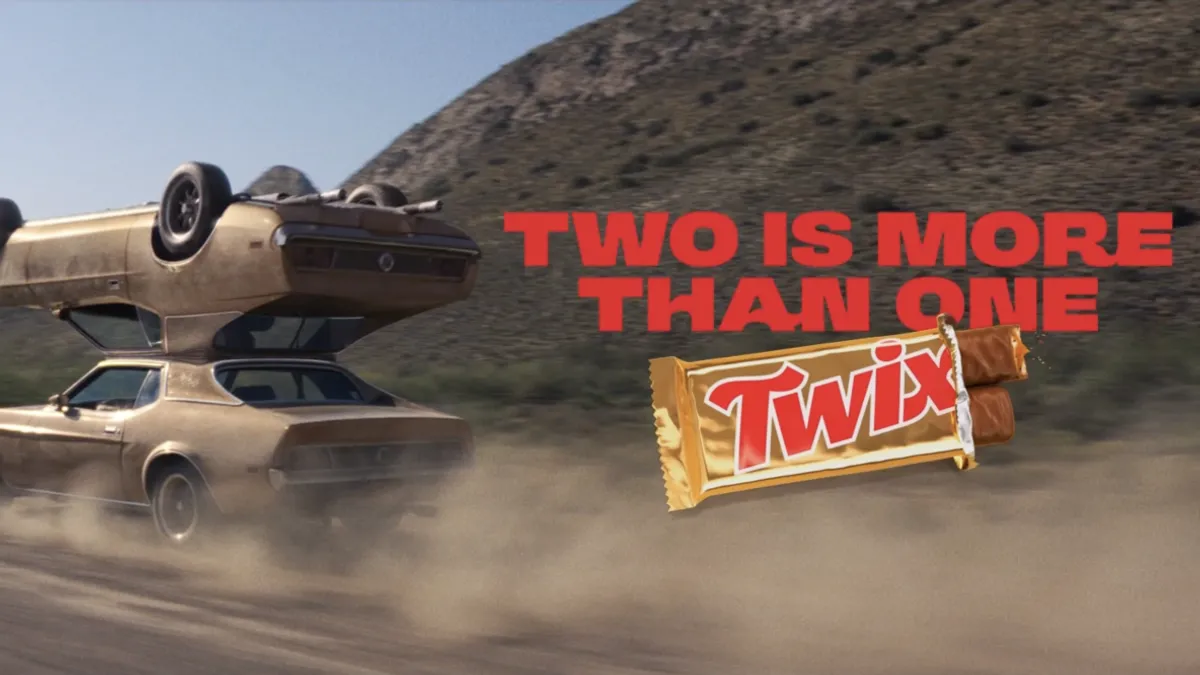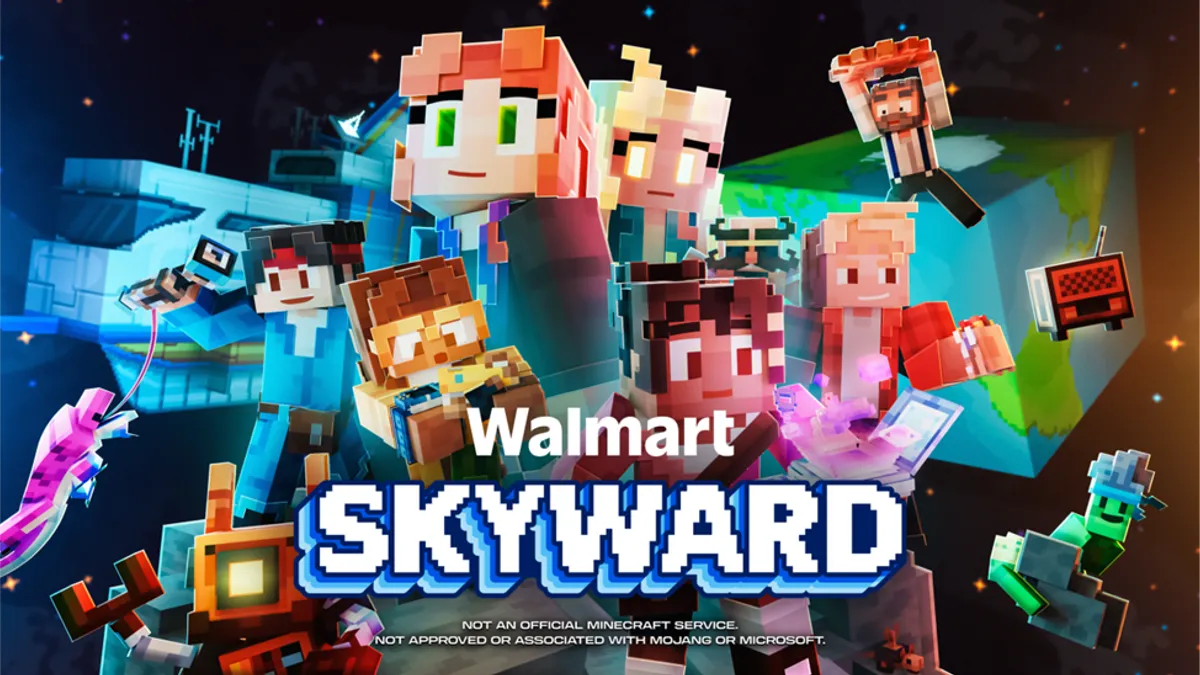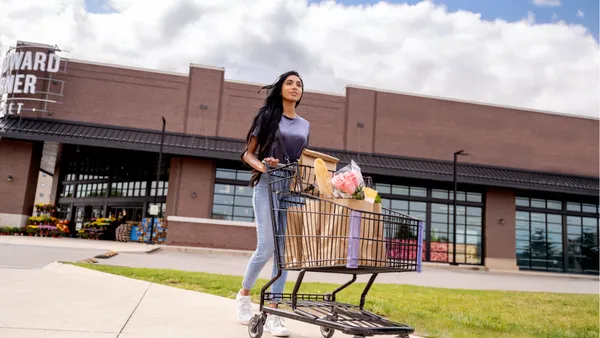Convenience store chain 7-Eleven today launches a new 360-degree marketing campaign that ends the brand's six-year hiatus from TV advertising. "Take It To Eleven" includes spots featuring members of different subcultures expressing themselves in 7-Eleven parking lots that were helmed by film director Harmony Korine ("Spring Breakers," "Kids"). Informed by research into consumer attitudes and behaviors that continue to be affected by the pandemic, the effort — part of a planned doubling in marketing spend this year — is a back-to-basics approach for the brand.
"It is really a continuation of what the brand has always been about for 94 years," CMO Marissa Jarratt said. "We've always been obsessed with our customers, we have always had them at the core, and we've really always tried to go above and beyond to delight our customers and to give them what they need, when they need it, where they need it."
Jarratt, who joined 7-Eleven as CMO in late 2019 after a stint at Dean Foods and more than a decade at PepsiCo, explained how consumer research inspired the new campaign, how the brand utilizes digital and experiential channels, and why it selected a sometimes-controversial director to helm its new spots.
This interview has been edited for clarity and brevity.
MARKETING DIVE: Can you dig into the genesis of the "Take It To Eleven" campaign?
MARISSA JARRATT: Last year, we took some time during the depths of COVID to really go deeper on our brand purpose and our customers and understand who are the people that we're serving. Who are our core customers, as well as who are the customers we want to grow with? What really is our brand purpose and how does that help us better serve our customers?
We did a full ethnographic immersion with consumers; we ran quantitative studies to also understand some of the demographics, attitudes, behaviors, et cetera, of our customers. It really helped us understand the role that the brand plays in their lives, what we call an "ingenious accomplice." We're their trusty companion that they can count on to take on the unpredictability of life.
We wanted to bring this idea of the ingenious accomplice to life in a way with current customers as well as new customers and help them understand that that's how we can help them in their lives. The campaign is designed to showcase that spirit of taking things up a notch, of celebrating our customers ability to take things one step further, and that's how we landed on the idea of "Take It To Eleven."
How did insights about evolving consumer behaviors inform what you've done to help 7-Eleven adapt to these pandemic and post-pandemic changes?
JARRATT: We came across a recent University of Chicago study that said Americans are the unhappiest they've been in 50 years. Every year it gets worse, so this is just a continuing trend. But we took that insight and we thought, how are people going to be feeling as they return to work, as they look for jobs, as they put their kids back in school? They're going to be so focused on getting their lives back together and back in order that they may not have a ton of time to actually celebrate the things in life that make it worth living. So our goal is to help do that for our customers: to give them the things that they need that are essential, but also the things that can help them take a moment and just enjoy life.
From a digital perspective, we've got a ton of new features that we had already been developing before the pandemic but because of how consumer behavior changed so quickly, we simply accelerated how we launched those features into the marketplace, and kind of leaned into what was happening. So we've launched our digital wallet feature and we've piloted our mobile checkout feature, which are extensions of contactless payment. We have introduced fuel loyalty in almost all of our stores that sell fuel, which also provides a contactless payment option.
"Leveraging the digital sphere to really amplify what we're doing and get that kind of experience out there in greater detail makes it different."

Marissa Jarratt
CMO, 7-Eleven
Our biggest story that we're just so excited about is our delivery business. We launched our delivery business in 2018. At the time, it was probably more of like a curiosity, like, is this something that can work? Last year we quintupled the business. So we've got 24/7 delivery of over 3,000 items in our assortment, and we get it to our customers in about 30 minutes or less. So that's been a new way that we've been able to demonstrate to our customers what convenience looks like in 2021 and beyond.
When doubling marketing investment, what channels and platforms will see increased focus?
JARRATT: We are so excited about the opportunity to double the investment in media because it affords us the ability to really be present in the full funnel of media channels, from television and radio across different markets where we operate to outdoor — a big one for us given the immediate-consumption nature of our business. In addition to that, we have an expansive digital presence. So OLV, CTV, display, programmatic, search, social and digital radio, on top of our own channels: our website, social media and our 7Rewards program, which is 45 million members strong.
How does data, like what you're collecting with the rewards program, drive marketing decisions?
JARRATT: From a CRM perspective, like many other retailers with first-party data, we leverage it to understand what our customers are purchasing so that we can provide them with personalized and customized offers, as well as communications through our own channels. And we partner with our media agency to do lookalike targeting for media advertising, so that we can be as efficient as possible with those dollars.
Earlier this year, 7-Eleven turned one of its innovation stores, called Evolution Stores, into a "gaming palace" via an experiential activation. Do you see this as a channel that will see increased investment post-pandemic?
JARRATT: We're approaching [experiential] with an air of caution. For our company, associates, franchisees and customers, our guiding principle over the course of the last year has been to prioritize their safety and health first. So when we planned the gamers' paradise in February, we had a sit down discussion multiple times [about safety and health] so we can feel good about what we're doing and not introduce any unneeded risk, but also provide a jolt of fun and energy at a time when people really need it.
It's how we activated [participants'] experiences for a broader audience that is different then maybe what we've done in the past. We did a couple of different livestreams on Twitch with different gamers with the winners in the store. So we were able to shine a light on this once-in-a-lifetime experience for a handful of people, but make it much more inclusive for a broader group by leveraging the digital channels that we have access to.
I think we'll continue to think about it in both of those ways. We want to bring a real life experience to our fans, but we'll probably have to be careful about that and thoughtful about it to continue to prioritize everyone's safety, especially while we're in this new phase of COVID. But leveraging the digital sphere to really amplify what we're doing and get that kind of experience out there in greater detail makes it different.
How does having the Evolution Stores feed back into marketing?
JARRATT: One thing that they let us do is understand where customer demand is going, and what really resonates with our customers, and how we then amplify that through our communications and activations.
We've started to think about our innovation stores also as a bit of a lab for how we bring murals to our stores. We view murals [by local artists] as a way to communicate the brand vision and purpose in a different way that also drives that connection at the local community level. So that's been a pretty unique area that we're exploring from a marketing perspective: how do we bring our brand voice to life at the store in new and different ways. That's an example of an innovative way that we're bridging the store experience with how we bring a different visual aesthetic to the store and then publicize that through social media and digital channels to build that awareness.
The "Take It To Eleven" spots are directed by Harmony Korine, who has worked in the commercial space but whose own work is not as brand safe. Why was he a good fit here?
JARRATT: I grew up with Harmony's work… "Kids" is really where I first knew who he was, and I followed him since. His visual approach, as well as his approach with the talent, is really just awesome. He's worked a lot in the music industry and we knew audio design was going to be an important part of the campaign. So having him help us capture that energy, and the movement of the talent and the kind of vibe that they were experiencing in that moment, whether it was a group of low-rider chicks or the Japanese rockabillies or the guy doing the JB style rollerskating in the parking lot.
In the spot with the band promoting delivery, that's an original song that we wrote and produced as part of this, and Harmony helped provide some creative input on the development of that song. Based on his approach and the type of work that he had done, he could help us bring our brand voice to life in a different way, and in a way that hopefully would be really relevant for our current customers, but also those new consumers that we're trying to attract and get to think about 7-Eleven differently.



